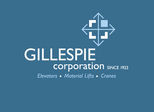- Glenn Siegel
- Oct 29, 2018
After the concert, when I had a chance to talk with Darius Jones about the project he brought to the UMass Magic Triangle Jazz Series, it all began to make sense.
The unrecorded project is called Shades of Black. Jones writes:
The music explores the partial or total absence of light, and the artistry within a dark spectrum. A lack of light can bring about feelings of uncertainty or fear of the unknown, causing some to perceive black or dark things as devoid of beauty and having a certain negative connotation… In the large black textured surface of Chiyu Uemae’s oil painting, ‘Untitled,’ I discovered how rich an environment absence of light could be. I found myself standing in front of the painting and asking, ‘What would this sound like?’
One hundred people inside the UMass Old Chapel on Thursday, October 25 got the world’s first glimpse of Jones’ answer. With the leader on alto saxophone, and Sam Newsome, soprano saxophone, Cooper Moore, organ, and Chad Taylor, drums, Shades of Black produced a 75-minute torrent, producing an intense wall of sound that elicited both exhilaration and distress among the crowd.
Last week, in reaction to the Hearts & Minds concert at the Shea Theater, one Amherst College student wrote, “I was frazzled and awestruck by the music.” That seemed to be a common reaction to Jones’ concert as well. The frazzled fled, while the awestruck were swept up in a vortex of permutating sound. “As you look into the black, you begin to see colors,” Jones told me afterwards. Sometimes I would listen to the music as one overwhelming mass of sound, but as I moved my concentration from one master musician to the other, I began to hear iridescence.
In 2008 I produced a project called Doom Jazz featuring Jaime Saft and Bobby Previte, which utilizes the dark, foreboding aesthetic of Doom Metal. Some people were quite frazzled by that one, too. But while the oppressively down-tempo heaviness of Doom Jazz settled on us like a fog, Shades of Black whacked us upside the head, infusing the room with a barely contained energy.
Since the effect was so intense so often, it was easy to forget that the band consisted of four fully realized creative souls, each playing intensely musical lines. During stretches when both saxophonists were circular breathing and playing multi-phonically and Cooper-Moore was laying forearms and dense chords on his keyboard, the sound was enveloping.
When I changed my focus and tried to discern what Sam Newsome was saying, I was astounded. His control, his references to early jazz styles and his originality, thrilled me. He attached balloons to his soprano; he inserted some tubing into his horn then blew; he used mutes and bells; at one point he played just his mouthpiece. I’ve heard others do that, but I’ve never heard anyone make more music doing it than Newsome. He said he played the Iron Horse decades ago with Terrence Blanchard, probably before he gave up the alto sax to devote himself to the straight horn. We have been in conversation about bringing him back to the Valley.
Drummer Chad Taylor is becoming a regular Valley visitor. He was in town with Hearts & Minds, and he’s coming to the 121 Club on December 14 to perform with tenor saxophonist James Brandon Lewis. My friend Jon King observed how calm Taylor looked and how relaxed he played while creating mountains of sound. In lieu of taking typical drum solos, he would feed the fire by pushing himself to the front of the rumble and letting loose.
Someone should make a movie or write a biography about Cooper-Moore. Charismatic and endlessly inventive, Cooper-Moore is an instrument maker, pianist, educator, and community organizer, who at 72, continues to influence the music and many lives within it. Jones called him a “unique individual” and told us that Cooper-Moore took him and Chad Taylor to Europe for the first time. At the Magic Triangle concert, he played his Korg keyboard through a Leslie cabinet, giving his sound a Hammond B-3 vibe, at one-third the weight.
In the New York Times, Giovanni Russonello wrote that Darius Jones is “the most visceral and distinctive alto saxophonist of this era.” That unique sound serves a first-rate musical mind, constantly on the look-out for new ideas to explore. He was just awarded a commission from Harvard’s Fromm Music Foundation, so watch out. Jones has previously worked in the Valley with Matthew Shipp at UMass and with Adam Lane and Jason Nazary at the Parlor Room. It’s very exciting for me to build relationships with people who are not only playing at the highest levels, but shaping the music in all its multi-hued splendor.



























